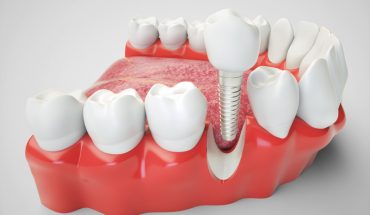Wisdom teeth, or third molars, usually emerge in late adolescence or early adulthood and can often lead to dental complications. While some people never experience issues with their wisdom teeth, others face problems such as impaction, misalignment, and pain. Understanding how to manage these potential issues is key to ensuring your wisdom teeth don’t cause unnecessary trouble.
Visit the Dentist Regularly
The cornerstone of preventing wisdom teeth complications is regular dental check-ups. Dentists use X-rays and physical exams to monitor the progress and positioning of wisdom teeth as they develop. These visits are crucial for early detection of problems such as impaction, where the tooth doesn’t fully emerge through the gums, or misalignment, which can affect other teeth and cause discomfort. Routine dental appointments allow for a proactive approach to wisdom teeth management. Your dentist can assess the likelihood of future problems and may suggest proactive removal to prevent complications like overcrowding, infection, or damage to adjacent teeth.
Have Your Wisdom Teeth Removed
For many, the removal of wisdom teeth is a preventative or necessary measure to avoid future dental issues. This is particularly recommended if the teeth are impacted, misaligned, or causing pain and discomfort. The procedure, usually performed by an oral surgeon, involves either local or general anesthesia, depending on the complexity of the case. Post-surgery care is vital for a smooth recovery. You’ll need to take at least a day to recover after having your wisdom teeth removed. This recovery period involves rest and avoiding activities that might strain the surgical site. Your dentist or surgeon will provide detailed instructions on managing pain, swelling, and dietary restrictions. Adhering to these guidelines is crucial to prevent complications like dry socket or infections.
Maintain Oral Hygiene
Maintaining good oral hygiene is essential in minimizing risks associated with wisdom teeth. Even if your wisdom teeth have fully emerged without issues, they are more susceptible to decay and gum disease due to their position at the back of the mouth. This location makes thorough cleaning more challenging. Effective oral hygiene practices include brushing twice a day, flossing daily, and using an antiseptic mouthwash to reduce bacteria and plaque build-up. Special attention should be given to cleaning the area around the wisdom teeth, as food particles and bacteria can easily accumulate in this hard-to-reach area. Additionally, regular professional cleanings and check-ups can help maintain oral health and catch any early signs of trouble related to wisdom teeth.
Managing wisdom teeth effectively involves a combination of regular dental check-ups, proactive decisions about removal, and diligent oral hygiene. By staying vigilant and adhering to these practices, you can significantly reduce the likelihood of wisdom teeth causing discomfort or health issues. It’s important to remember that every individual’s situation is unique, so consulting with your dentist for personalized advice is crucial. With the right care and attention, you can ensure that your wisdom teeth do not disrupt your oral health and well-being.
Did You Enjoy Reading This Article? Here’s More to Read: The Worst Foods for Your Teeth That You Can Eat




